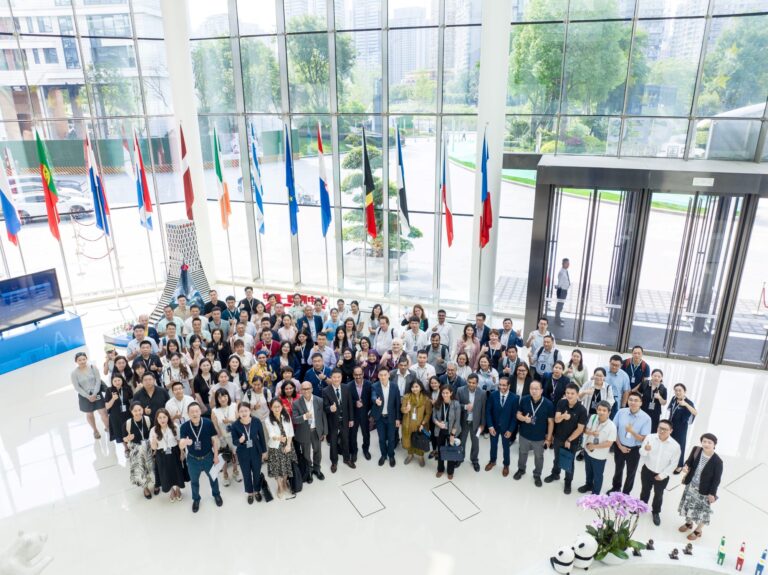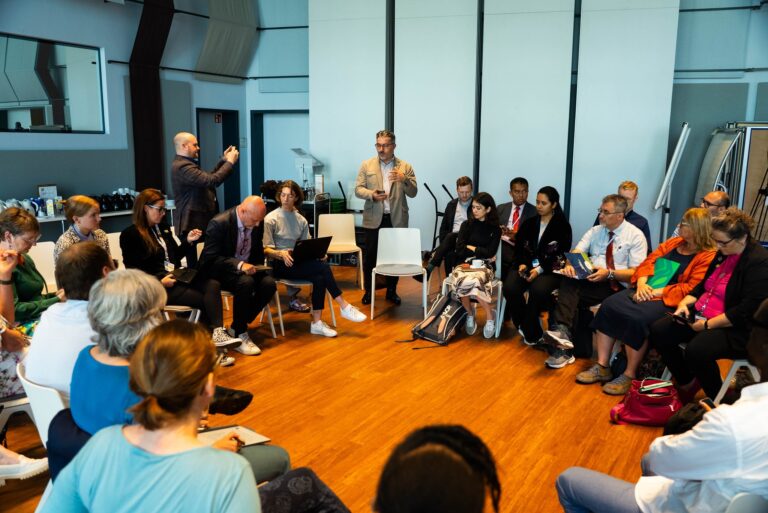Greater Sydney hosts a regional Town Hall COP, sparking community-driven climate dialogue
On 13 March 2025, Greater Sydney hosted one of the first Town Hall COPs for 2025 – part of a growing global effort to place local priorities at the center of national and international climate decision-making.
The Town Hall COP , supported by ICLEI – Local Governments for Sustainability, is a climate dialogue that empowers communities to reflect on their progress, raise their voices, and shape the path forward. Structured in the spirit of the UN’s Climate Change Conferences (COPs), these forums create space for local leadership to align with national and global ambition, grounded in the lived experience of communities.
A dialogue shaped by local realities in Sydney
Hosted in a Talanoa Dialogue format, the Greater Sydney Town Hall COP convened representatives from 16 local councils across the region for a day of honest conversation, collaborative problem-solving, and future-focused planning.
“Town Hall COPs like ours present this ideal opportunity to mobilize locally, bringing together diverse stakeholders to influence national, regional and global outcomes for inclusive, bold climate action,” said Elizabeth Adamczyk, Councilor, City of Newcastle, Australia and newly elected Chair of the ICLEI Oceania Regional Executive Committee.
From the outset, the event was led by local priorities. Discussions centered on what councils were already doing, where they faced barriers, and how they could scale up impact – highlighting the Town Hall COP’s emphasis on being community-led and shaped by local knowledge.
“We were very fortunate to really test what’s happening in all things NDCs with openness and honesty about what more can be done,” said Luigi Zarro, Manager of Operations at ICLEI Oceania.
Connecting to national climate plans
Throughout the dialogue, participants tied local experiences to Australia’s national climate commitments – its Nationally Determined Contributions (NDCs). There was shared concern that the country’s current NDCs fall short of a comprehensive, whole-of-economy response. The persistence of fossil fuel subsidies and the re-emergence of nuclear energy in policy discourse were seen by many councils as distractions from urgent priorities like electrification and renewable energy expansion.
The event reinforced that local governments are essential actors in delivering national climate targets, and that their inclusion in the climate policy process is critical to closing the implementation gap. By connecting municipal action to federal policy, the event embodied the Town Hall COP principle of being nationally relevant.
One particularly clear finding: local councils in Greater Sydney alone have the capacity to reduce emissions by up to 15 percent – a compelling case for their role in shaping Australia’s next climate plan.
From dialogue to transformation
Local leaders used the space to surface practical, pressing issues that often fall between the cracks of national policy making – ranging from building code reforms to transitioning households off gas, and from coastal resilience to misinformation.
Several councils expressed concern over misinformation campaigns undermining renewable energy projects at the local level. “There was quite a bit of concern about ensuring that some of the great voices like those of the Clean Energy Council rise to the fore and not be quashed by vested interests,” said Zarro. The conversation pointed to a need for coordinated responses, shared resources, and stronger public engagement.
Other key themes included a just transition and inclusion, as well as water and urban resilience. Councils shared how they are embedding equity in local policies, with a strong call for national climate planning to do the same – ensuring that vulnerable and marginalized communities are protected and empowered. And with much of Sydney facing increased flooding and rainfall, participants emphasized the need for sustainable water design, coastal management, and better integration of nature-based solutions.
These themes reflect the third guiding principle of Town Hall COPs: being transformation-oriented. Rather than abstract commitments, the discussions were grounded in everyday realities – housing, infrastructure, jobs, affordability – and a determination to ensure that climate action supports thriving, resilient communities.
The power of multilevel climate collaboration
The Greater Sydney Town Hall COP showed how local governments can lead with courage, clarity, and collaboration – and how national governments can benefit from listening more closely to what’s happening on the ground.
As countries prepare their next round of climate plans – NDC 3.0, to be submitted ahead of COP30 in Belém, Brazil – this kind of multilevel engagement will be essential. The Town Hall COP is proving to be an effective and adaptable model for shaping climate policy from the bottom up.
Interested in bringing a Town Hall COP to your community? ICLEI can support you with event guidance, toolkits, and small grants. Visit ICLEI.org/town-hall-cop or contact [email protected] to learn more.







